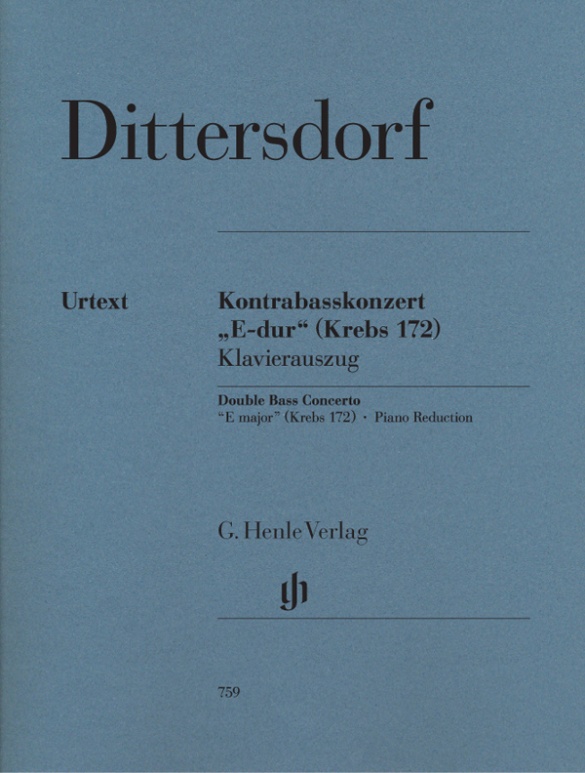

Carl Ditters von Dittersdorf
Double Bass Concerto “E major” Krebs 172
With this cornerstone of the double bass repertoire we continue a still young but important part of our catalogue. This musically-charming work, full of technical trickery, is with justification demanded time and again as a test piece or set piece for competitions. In order to accommodate the “Viennese tuning” used at the time, we also provide a solo part in fret notation. The piano part in D major and E major (!) can be used to accompany the doublebass part either in its solo or orchestral version. As an alternative to the familiar cadenzas by Sperger, editor Tobias Glöckler has added two further tuneful and stylistically-appropriate cadenzas of his own.
Content/Details
About the Composer
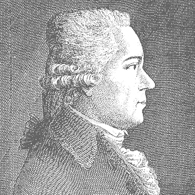
Carl Ditters von Dittersdorf
An Austrian composer and violinist of the early Classical period. His remarkably large output is a consequence of his professional career; a great number of works were written under time pressure for annual events for his employers. Among other things he wrote around 130 symphonies, singspiels, operas, works for chamber orchestra, cantatas, oratorios, and masses.
| 1739 | Born in Laimgrube near Vienna on November 2. |
| from 1746 | He receives violin instruction from Joseph Ziegler and others. Active as a soloist for Vienna’s Benedictine Monastery of the Scots. |
| 1751 | In March he enters the service of Prince Joseph Friedrich von Sachsen-Hildburghausen. He becomes a pupil of Giuseppe Trani. |
| from 1754 | He studies composition with Giuseppe Bonno. |
| from 1761 | He is appointed to the Hofburg Theater and establishes himself as a virtuoso. |
| 1764 | Music director for Adam Patáchich, Bishop of Grosswardein (Oradea, Romania). Here he composes symphonies, concerti, and vocal music for liturgical usage. |
| 1769 | On November 1 he enters the service of Count Philipp von Schaffgotsch, Prince-Bishop of Breslau (Wrocław), at Castle Johannisberg in Javorník (Silesia). |
| 1770 | Knight of the Papal Order of the Golden Spur. |
| 1773 | On June 5 he is elevated to the nobility. |
| 1776 | On July 11, his singspiel “Der Apotheker und der Doktor” (“The Apothecary and the Doctor”) is premiered at Vienna’s Burgtheater. |
| 1786 | His twelve symphonies after Ovid’s Metamorphoses are premiered in Vienna in May. |
| 1794–97 | Writes ten singspiels to his own libretti, as well as incidental music, for the court theater of Duke Friedrich August von Braunschweig-Oels. |
| 1799 | Dies at Nový Dvůr near Červená Lhota Castle in Bohemia on October 24. |
About the Authors
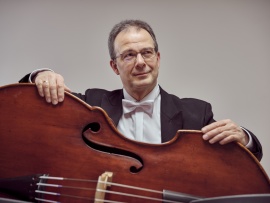
Tobias Glöckler (Editor, Fingering and bowing for Double Bass, Cadenzas)
Tobias Glöckler is associate principal double bass player at the Dresdner Philharmonie and a prizewinner of the International ISB Double Bass Competition (USA). He studied with Konrad Siebach at the Music Conservatory in Leipzig, perfecting his skills with Jeff Bradetich (Chicago) and Ulrich Lau (Stuttgart). While studying, he was principal double bass player with the International Gustav Mahler Youth Orchestra under Claudio Abbado. He has performed as a soloist with different orchestras, including the Dresdner Philharmonie with Ton Koopman. In addition he has made recordings for radio and has made guest appearances at diverse music festivals. He is a founding member of and solo bass player with the “ensemble frauenkirche” and has explored a great many chamber music works with the Dresdner String Quintet.
Glöckler teaches at the music conservatory in Dresden. His efforts concerning the revival of the “Viennese Tuning” have been rewarded with a Distinguished Achievement Award for historical performance practice.
Photo © markenfotografie
Product Safety Informations (GPSR)

G. Henle Verlag
Here you can find the information about the manufacturer of the product.G. Henle Verlag e.K.
Forstenrieder Allee 122
81476 München
Germany
info@henle.de
www.henle.com
I want to congratuate you for your excellent cadenza for the Dittersdorf concerto. I grew up with the old edition and had to alter the cadenza or help my students compose their own. Your cadenza is truly stylish, organic and challenging. I very much like the D minor bit which reminded me of C.Ph.E. Bach and papa Haydn. Keep up the good work.
Bertram Turetzky in a letter to the editor, 2013... das hier zu besprechende Kontrabasskonzert in E-Dur (Krebs 172) gilt sogar als das vielleicht wichtigste Kontrabasskonzert der Klassik überhaupt. Entsprechend ist die Edition des Henle-Verlags natürlich keineswegs die erste Ausgabe des Werkes. Doch selbst für Kontrabassisten, die bereits eine andere Augabe ihr eigen nennen, gibt es gute Gründe, sich auch die Henle-Ausgabe zuzulegen.
Das Liebhaberorchester, 2012Du beau travail éditorial qui redonne des lettres de noblesse au plus méconnu des instruments à cordes.
La Lettre du Musicien, 2011In un periodo in cui le esecuzioni su strumenti originali sono diventate meno rare, speriamo che questa nuova uscita incentivi anche i contrabbassisti ad un approccio filologico al proprio repertorio.
Archi magazine, 2011Breitkopf and Henle have now done Dittersdorf proud, with a new critical edition (...) I hope players will convert to this edition.
Early Music Review, 2011Mit wissenschaftlicher Akribie und nach exaktem Quellenstudium hat der Dresdener Bassist Tobias Glöckler zunächst eine Fassung für Kontrabass und Klavier veröffentlicht und dazu auch eigene Kadenzen geschrieben. Für diese Urtext-Ausgabe wurde Glöckler mit dem Deutschen Musikeditionspreis ausgezeichnet. Nun folgte in einer Gemeinschaftsproduktion von Breitkopf und Henle die Partitur. (...) Nun sind endlich historisch richtige Aufführungen des wohlbekannten Konzerts möglich. Es dauert etwa zwanzig Minuten. Die Öffentlichkeit kann sich darauf freuen.
Das Orchester, 2011The excellent editing is more transparent than that of previous editions .… Moreover, this edition allows several performance options due to the two piano parts (in D and E) and the four bass parts. … The piano reduction … is more successful than that of the Yorke and Hofmeister editions, including readily manageable page turns and Henle’s usual high standards of accuracy and clarity.
American String Teacher, 2007This edition is a gem. It is to be valued for the attention to detail, the wealth of historical knowledge, and the information on performance practice and Viennese tuning. Congratulations to Mr. Glöckler and G. Henle Verlag. One hopes that we see many more high quality, scholarly editions from them.
Bass World, 2007… in working from the oldest available source material, and in championing the historic Viennese tuning, editor Tobias Glöckler has sought to make good the errors and misconceptions present in many existing editions, and provides a compelling reason for seeking out the peg winder and miscellaneous old strings. … Glöckler’s comprehensive edition allows for four different performance options … Learning the system from scratch is rendered unnecessary thanks to Glöckler’s fingering notation, which indicates pitches as though for a fourths-tuned bass. This provides quick and easy access to the tuning but makes it essential to follow Glöckler’s string and fingering choices. In addition to his meticulous scholarship, Glöckler presents two sparkling new cadenzas, stylistically appropriate, splendidly virtuosic, and tweaked to fit the different tunings.
Double Bassist, 2006Riduzione e parte sono realizzati in modo esemplare nella grafica austeramente impeccabile che distingue la casa di Monaco de Baviera. Il teso musicale è preceduto da un’introduzione storico-critica (quanto mai interessante e necessaria) nella quale il curatore esplicita scelte e criteri che hanno guidato la realizzazione di quella che si propone come l’edizione di riferimento di un testo imprescindibile per qualunque contrabbassista.
Giornale della Musica, 2006Tobias Glöcklers Editionsarbeit vermittelt einerseits einen klaren Einblick in die Quellenlage, legt aber auch Zeugnis ab vom Willen, einen gut austarierten Kompromiss zu finden zwischen historischer Genauigkeit und Nähe zur heutigen Spielpraxis.
das Orchester, 2019推荐
autogenerated_cross_selling
本书目其他版本


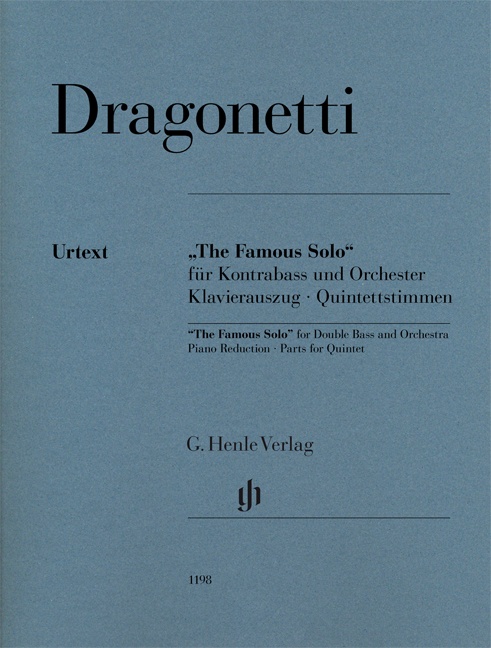
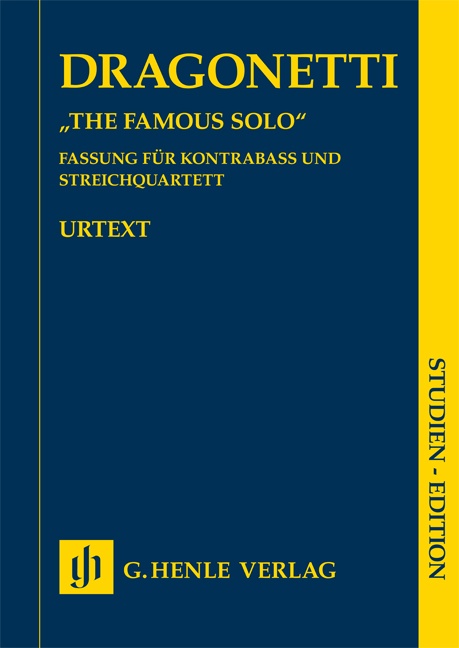

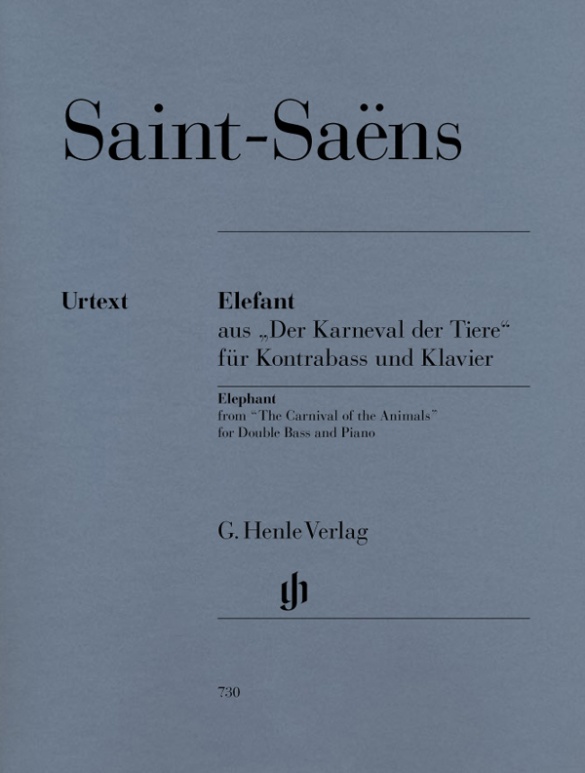
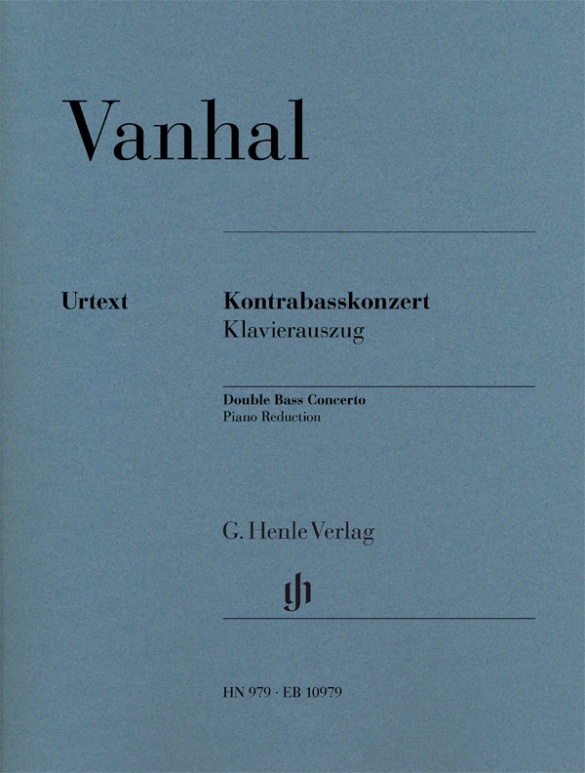
Part in "Viennese tuning" (A-d-f#-a): free download
Orchestral material from Breitkopf & Härtel